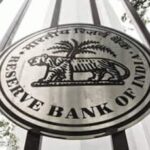Having faced a tough battle in negotiating a statement at the UN Security Council where Pakistan is currently a non-permanent member, India has reached out to the other non-permanent members of the UNSC as part of its diplomatic offensive in the wake of the Pahalgam terror attack.
External Affairs Minister S Jaishankar spoke to Foreign Ministers of Algeria, Greece, Guyana, Panama, Sierra Leone, Slovenia and Somalia — all are currently on the UNSC for a two-year term as non-permanent members.
He also spoke to UN Secretary General Antonio Guterres. In a post on X, he said he received a call from Guterres. “Appreciate his unequivocal condemnation of the terrorist attack in Pahalgam. Agreed on the importance of accountability. India is resolved that the perpetrators, planners and backers of this attack are brought to justice.”
The Cabinet Committee on Security, of which Jaishankar is a member, is due to meet in New Wednesday.
While Algeria, Guyana, Sierra Leone, Slovenia and South Korea are on the Council until December 2025, Greece, Panama, Somalia, Denmark and Pakistan will be there until December 2026.
In his phone conversations with the Foreign Ministers, Jaishankar conveyed India’s policy of “zero tolerance” towards terrorism, and sought their support on “the need to combat terrorism in all forms and manifestations”. He thanked each of them for their condemnation of the Pahalgam terror attack and messages of “solidarity and support”.
Ever since the April 22 terror attack, India and Pakistan have been in an intense diplomatic power play and both Delhi and Islamabad have been trying to mobilise international support.
As Foreign Ministries of both countries briefed foreign ambassadors in their capitals, India faced an uphill task in New York, where the UN statement on Pahalgam was negotiated, and had a faceoff with Pakistan.
The UNSC “condemned in the strongest terms” the terrorist attack in J&K, stressing that those responsible should be held accountable and the organisers and sponsors of this “reprehensible act of terrorism” should be brought to justice.
“The members of the Security Council underlined the need to hold perpetrators, organisers, financiers and sponsors of this reprehensible act of terrorism accountable and bring them to justice,” its press statement said.
“They stressed that those responsible for these killings should be held accountable, and urged all States, in accordance with their obligations under international law and relevant Security Council resolutions, to cooperate actively with all relevant authorities in this regard,” it said.
India wanted the “Government of India” mentioned in the statement, but Pakistan had its way with “all relevant authorities” – Pakistan Prime Minister had called for a neutral probe, and got support from China.
India also could not get the naming of The Resistance Front in the statement because Pakistan and China blocked the reference.
Pakistan, on the other hand, was not able to get the word “disputed” added with and Kashmir. India was able to prevail there because of the US and France.
France is President of the Council for the month of April and the press statement was issued by Council President Jerome Bonnafont, Permanent Representative of France to the UN – he had served as French ambassador to India from 2007 to 2011.
Pakistan currently sits in the UN Security Council as a non-permanent member. A press statement requires agreement from all Council members and is a negotiated text.
News agency PTI adds from the United Nations: India said the open confession of Pakistan’s Defence Minister Khawaja Asif admitting to his country’s history of supporting and funding terrorist organisations exposes Pakistan as a “rogue state” fuelling global terrorism and destabilising the region.
India’s Deputy Permanent Representative to the UN, Ambassador Yojna Patel, delivered a strong Right of Reply at the hybrid launch event for the ‘Victims of Terrorism Association Network’ (VoTAN) of the UN Office of Counter-Terrorism when Pakistan’s delegate made a reference to the Pahalgam terror attack.
“It is unfortunate that one particular delegation has chosen to misuse and undermine this forum to indulge in propaganda and make baseless allegations against India,” Patel said.
“The whole world has heard the Pakistani Defence Minister Khawaja Asif admitting and confessing Pakistan’s history of supporting, training and funding terrorist organisations in a recent television interview,” she said.
Patel asserted that “this open confession surprises no one and exposes Pakistan as a rogue state fueling global terrorism and destabilising the region. The world can no longer turn a blind eye. I have nothing further to add,” she said.
In a recent interview on Sky News, Asif said, “Well, we have been doing this dirty work for the United States for about three decades, you know, and West, including Britain” to a comment that he admits that Pakistan has had a long history of backing, supporting, training and funding these terrorist organisations.








